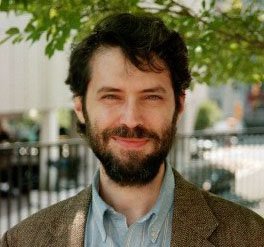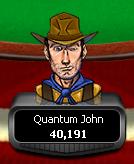Heresy! No one in their right mind would support rationing health care. Would they?
Well, since there is a finite amount of health care, and that amount is less than everyone would use if they could, the fact is that health care is rationed now. The current rationing mechanisms are complex, and involve many intertwined interactions between the free-market, public and private health insurance plans, health provider management organizations, volunteers, and other components. It's complex now, it's not going to become simple, and there are ways to improve it and ways to make it worse. In fact, most changes that would make one aspect of health care better will make other aspects of health care worse. So it would be prudent to make changes very carefully, understanding as much of the trade-offs as possible.
But not now. Now, it's national-electioneering time, and most candidates are going to be talking about health care. Lots of them are going to use the phrase universal health care, but what they'll actually talk about will be universal health insurance. It pains me to observe that there are so many people running for office that use "health care" and "health insurance" as synonyms.
The Politics of Health
Most politicians are not morons, so the reason they talk like this is likely that they are simply pandering for votes with sound-bites instead of carefully reasoned positions. I can't help but wonder, though, how many even realize that health care and health insurance are not the same thing. People don't need health insurance, they need health care -- health insurance is just one of several mechanisms to ration health care.
Universal Health Care. Sounds great! But people will never get what many politicians are promising... extending health care to everyone, without compromising quality. Politicians will never fulfill those promises because it's not economically possible for any society to accomplish that. Some of them make know that, but all of them will yammer about it and pass legislation that deals with health care, and they'll claim victory based on such legislation, regardless of the actual results of the legislation.
Ain't Gonna Happen
I'll use two extremes to illustrate why universal health care is not possible. The concepts are the same whether applied to a single nation or the globe, but since we're using the term "universal", I'll use global terms for this example. So let's assume a world population of 6 billion and total global wealth of 1.1 quadrillion dollars. Let's set aside an extremely meager 10% of wealth for food, housing, transportation, and all those other things people seem to like, leaving us with an even 1 quadrillion dollars for health care.
Great Health Care
For the first extreme, suppose researchers develop a vaccine that will make a person immune to all disease, but that the process to manufacture it results in a cost of one billion dollars per dose. (The pill requires a superconducting super-collider to spawn reactions that result in a molecular accrual rate wherein the energy and maintenance costs equal the billion per dose.) While were at it, let's pretend that there are no safety/side-effect concerns.
If we were to spend our 1 quadrillion dollars for health care on this super pill, we could create doses for exactly one million people, or less than two-tenths of one percent of the world's population. Um, that's noticeably less than universal. But, we run the machine because the researchers hope to discover a way to substantially lower the cost, and while they're researching, they create a few hundred of the pills. Who gets them? Who decides who gets them?
Good news! The researchers have discovered how to significantly lower the costs! Unfortunately, it still isn't enough for everyone. So, you chose... do you want the pills to go to the oldest people, the children, or random chance selection? Okay, say we chose the children for the noblest of reasons. Now, at maximum production, we can provide one pill to 80% of all children born. Sorry, there's just not enough wealth to get to 100%. Maybe if we took some of our health care money and used it to improve the economy we could get there, but that would mean we have to create fewer pills now. How could you possibly chose to reduce pill production to cover only 70% of the children now in order to get to 100% some day in the future? Those are hundreds of millions of children you're leaving exposed to deathly disease. Okay, 80% it is. Which 80%?
Great Health Care Equality
Here's the other extreme. All world governments agree to a global health care plan that will be absolutely equal. In order to ensure that it is equal, everyone reluctantly agrees not to allow any health care other than the what is provided by the global health care plan, so the rich people can't have anything better than the poorest person. Yeah! Now that's truly fair to all! Okay, we know we can't afford to give everyone the best of everything, so we have to start from the other direction. We'll come up with a list of health care benefits that can be provided to every person on the planet, adding one item at a time until we reach our 1 quadrillion dollar limit. Now let's see how much we have to spend. One quadrillion divided by 6 billion people equals... $166,666.67!
Wow, jackpot! That's a whole lot of health care for every man, woman, and child on the planet! So, we can allocate for each person for their entire life. Oh, let's say, two boxes of band-aids, two emergency-room visits for broken bones, and we don't have those super-pills under this scenario, so we'll dedicate some funds for vaccines, one-heart attack emergency room visit, a few drugs such as cholesterol and blood-pressure control, and we'll allocate the rest to cancer chemotherapy and radiation. Unfortunately for you, you need a heart transplant, and that didn't make it onto the list.
Well, that's no good, so we'll make the universal health care plan so that everyone gets up to $166,666.67 worth of whatever they need. All right! Oops, it seems that your heart transplant would cost $200,000. Sure, if you sell your house, you can come up with the extra $33,333.33 to throw into the pot, but you're not allowed to. That would be unfair to all the people who don't have any extra money, and a fundamental principle of the universal health care plan is that we absolutely must be fair. No one can get anything extra just because they can afford the extra costs. Besides, we forgot about the time you broke your arm on the playground and had a doctor put a cast on it. Now you're an additional $500 short.
But then you realize that there are a lot of people who are healthy their whole lives and never need any health care at all. The health care money those folks don't use should be made available, equally of course, to all the folks who do need it. And joyously, it turns out to be $33,833.33, so it will cover your heart transplant!
Unfortunately, it took quite a bit of effort to get the world to agree to the universal health care plan, and now its managed by a United Nations bureaucracy, so it may take a little longer to get them to change things than you have left on your old ticker.
Promises, Promises
Okay, so what's my point? The point is that universal health care is what people need, but that universal health care without compromising the maximum quality of health care is not possible, and any political candidate who says otherwise is either woefully ignorant or is lying. So, please don't vote for morons or liars.





